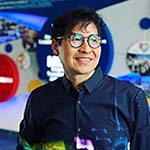(This report is provided by Dr. Ching-Ping Lin’s research team in the Department of Physical Education and Sport Sciences)
This paper explores the source of sports coach training knowledge. First, it discusses the theoretical basis of coaching education from the perspective of knowledge capture and community engagement and argues that the generation of learning depends on the complementarity of the two to establish a cognitive structure. Secondly, from the perspective of education, formal education means school education or courses with diplomas or certificates attached to the government system under highly institutionalized syllabi, including university sports related to institutes, sports coach research institutes, and full-time sports coaching courses at all levels of schools. Non-formal education refers to participation in conferences, training courses or seminars by local sports associations, sports clubs, or coaching associations through the will of individuals. Such courses are usually relatively short-term, voluntary, or even without any conditions, including seminars, workshops, conferences, visiting groups, and training camps related to each sport. Informal education refers to the educational opportunities aside from the formal and non-formal education. Such education is received from daily life, or learning in the workplace. Through task completion, interpersonal interaction, and the transmission of organizational culture, the coach is usually unaware of the occurrence of learning, since it is mainly from interaction and experiential learning. In addition to network information, professional coaching communities and other multi-channel supplementary learning establish a rich coaching knowledge base. After analysis, it was found that informal learning may be an important source of coaching knowledge, so supplementing formal education with the concept of social interaction and co-constructing knowledge can be regarded as an important part of coaching.
Coaching training is key to maintaining and enhancing the professionalism of athletic coaches, and different types of learning opportunities have different influences on the development of coaching knowledge, such as formal education, non-formal learning, and informal learning.
The compilation study found that today's coaching education courses are mostly based on the academic orientation of skills, techniques, and game tactics, and expert coaches mostly improve their knowledge through informal networks such as interpersonal, inter-organizational relationships and interactions, as well as observing other coaches and mentors. The study also found that the current curriculum does not integrate experience, personal characteristics, or philosophy into the formal training mechanism, showing that the current form of coaching education is not yet able to effectively extract knowledge from it as a preparation for novice coaches, and has a limited impact on coaching practice (Wu & Lin, 2016; González-Rivera et al., 2017).
Knowledge construction is formed through action in the social context, and the knowledge and skills acquired by the coach need to be constructed in the context of the natural situation. That is, meaningful learning often occurs in the context of real situations obtained by new ideas, and common artificial situations rely on "experiential" learning to deeply internalize the training knowledge in the mind for extraction.
In informal learning, coaches are usually unaware of the occurrence of informal learning, such as task completion, interpersonal interaction, communication of organizational culture, other forms of interaction and experiential learning. The impact of daily experience in the workplace and sports training on learning is also considered valuable. The individual's previous training and practical experience are an important channel for obtaining training knowledge. The coach's own early athletic experience also plays an important role in integrating and filtering the knowledge of the coach, especially the achievement performance of the individual sports coach which is directly affected by his/her athlete experience. Through participation and observation to become a coach, such a formation experience leads the coach's career, and provides a continuous influence on beliefs and behaviors.
Additionally, formal and structured mentoring is considered by participants to be the most important factor in the professional development of coaches. It is not only helpful for developing novice coaches, but also for mature coaches in coaching roles, who are able to expand and acquire diverse experiences. Coaching knowledge development is a social process of knowledge sharing, such as the coach network community, which attempts to break boundaries and connect individuals, groups, or organizations through the Internet to share and innovate knowledge. However, Wu and Lin (2017) found that Taiwan expert coaches generally believe that the training method is very personal and valuable; unless it is their own direct subordinate system, it is difficult to share. Thus, our sports coaches are more conservative in terms of knowledge sharing, and the coordination and reflective dialogue between coaches is also lacking. Coaching professional community operation may be a modern trend, but we must learn to trust each other. Only by first establishing the trust and sense of mission of the community, and cultivating the habit of willingness to share, can we quickly spread knowledge and achieve the purpose of solving problems together. Coaches can also grow from diversified complementary learning, such as YouTube and rapid knowledge spreading with related sports training websites, which are valuable learning resources for coaching knowledge development. Coaches also have their importance in reflecting and reinterpreting past coaching work experience, emphasizing the concept of learning in action and reflecting in action, and building a professional coach community and peer interaction, which are also effective channels for improving coaching knowledge.
After analysis, it was found that informal learning may be an important source of coaching knowledge, including interactive learning such as mentoring, training, practical experience, or observing others, as well as supplementary learning through multiple channels such as network information and professional coaching communities, which establish a rich knowledge base of coaches, so the concept of social interaction co-constructed knowledge to supplement formal education can be regarded as an important part of coaching training.
Reference: https://www.airitilibrary.com/Publication/alDetailedMesh?docid=10247300-201903-201904170003-201904170003-1-8










